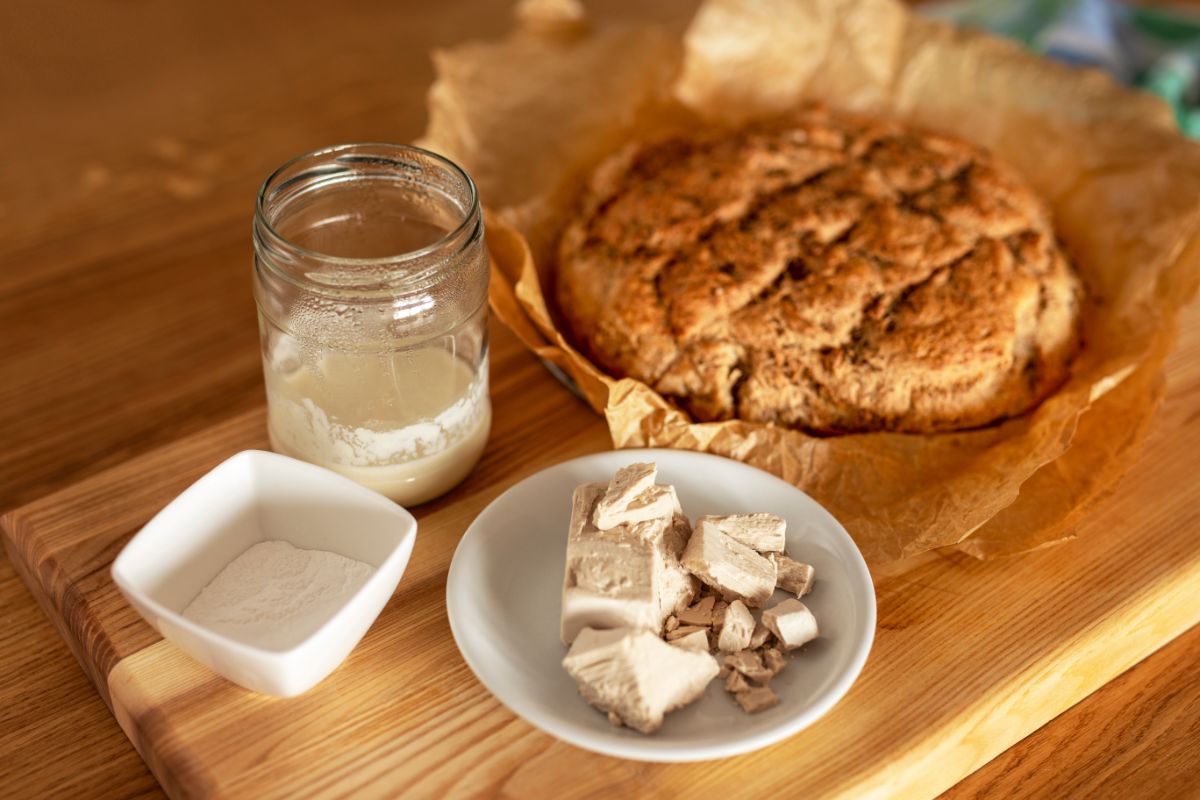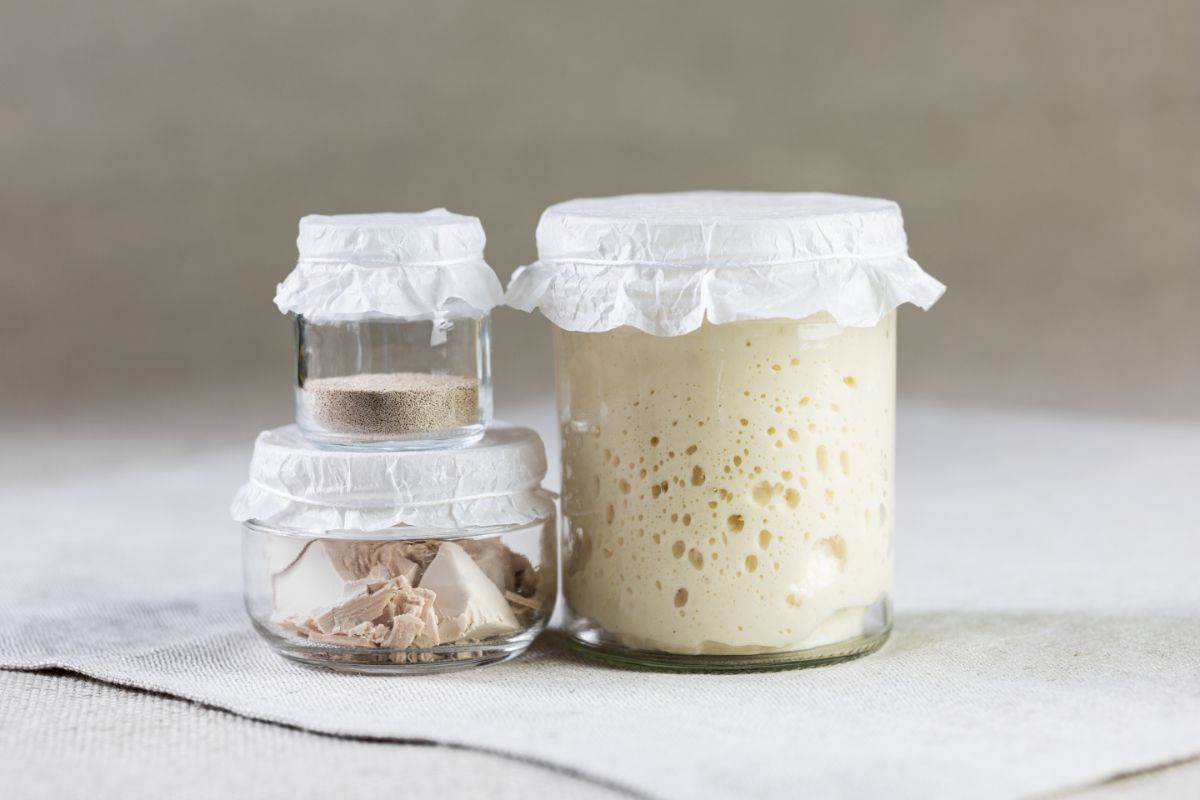If you are new to bread-making, you want everything to be perfect. This includes the ingredients you use and the finished products.

If you are unfamiliar with yeast, perhaps you are wondering “Does bread yeast smell bad?” As everyone has their own personal preferences, some people love the smell of yeast and others hate it. If you are in the latter category, there is a solution that will work for you.
What Is The Odor In Bread Yeast?
The unusual odor you notice in bread yeast is actually alcohol. The small amount of alcohol naturally found in yeast increases when the yeast is fermented. The longer it ferments, the more alcohol there will be in the yeast.
However, the yeast itself is not the only reason your bread smells like alcohol. Other ingredients in your bread work together to cause a chemical reaction. You may notice the effects while you are kneading your dough, while the bread is baking, and even when the bread is ready to eat.
Is It Safe To Eat Bread Containing Alcohol?
While you can make your own wine or other alcoholic beverages with yeast, this does not mean you will have the same effect when you use it for baking bread. Similar to other recipes that include alcohol, it is not present in the finished product. The alcohol itself burns off and is evaporated when the dough is heated and the bread bakes.
This is important information for anyone who needs to or prefers to, avoid alcohol. You will not experience any problems or health issues from eating the bread. After it is baked, the bread will have only the smallest trace amounts of alcohol, and it will not even be noticeable.
How Can You Eliminate The Alcohol Smell From Bread?
Regardless of the alcohol content and chemical reaction, you do not need to serve yeast bread that smells like alcohol. Some tips can help you avoid this odor in your freshly-baked bread.
First, check the rising point of your dough after it has been kneaded. It should only double in height. If it has risen higher, it will have a stronger odor.
Second, check the temperature for the bread to rise. 75 to 85 degrees is ideal. If it is higher, your dough will rise too fast. The yeast will not react properly. This can result in a noticeable odor because your bread will not bake properly.

Third, try a number of different bread recipes. If the recipe you prefer continues to have a strong odor after checking the rising point and temperature, the problem could be the recipe itself. Be prepared to experiment, and you will find the perfect recipe.
You can experiment on your own, too. While this may not be compatible with all recipes, mix a small pinch of cinnamon into your bread dough. As this popular spice will inhibit yeast activity, you may need to use more yeast in your recipe. Your bread will have a wonderful flavor, and it will smell as delicious as it tastes.
If you often include fruits or berries in your homemade bread, some of these foods can be contributing to the problem. There are numerous fruits and berries that have a high sugar-alcohol content, while some others have a much lower content. Try pineapple, sliced banana, strawberries, or blueberries instead. Your bread will have a delicious fruity taste and aroma.
There are additional tips that can prevent odor in your bread. Every time you bake bread, clean all of your supplies and equipment as soon as you are finished. Add a bit of salt to the soap and water. Salt prevents yeast growth, and will also eliminate the odor from your bread-making tools and equipment.
The way you store your bread can increase or reduce unpleasant odors. Storage options also affect the overall quality, texture, and taste of the bread. If bread is left out in the open at room temperature, the odor can actually increase. There are better, more effective options for storing your bread. You can try one or more of these options after the bread has been allowed to cool. The bread must be cool first, or the moisture from the steam can cause the bread to become moldy.
For the best results, choose a dry, airtight container. One option is a breadbox. However, all breadboxes are not the same. You will find many old-fashioned or cheap boxes that are not airtight, and the bread could quickly become stale.
This is the time to invest in a high-quality product. Choose a good breadbox, preferably one made of stainless steel. The bread will stay fresh, and not dry out. When you are ready to eat it, you will have delicious bread without the unpleasant smell of alcohol.
You should not store your homemade bread in your refrigerator. This method will remove the moisture from the bread and the bread will become stale. Wrap your bread in foil, and place it in a paper bag. If you use plastic bags, your crispy bread will become soggy.
If you do not plan to eat the bread within a short period of time, it can be safely stored in your freezer. Use a plastic bag for individual slices or the entire loaf. Tie the bag tightly, and place it in a traditional freezer container.
The bread will not become moldy, and it will retain its nice texture. It will be fresh when you are ready to serve it, and it will not have an unpleasant odor.
You can safely thaw frozen bread out in the open at room temperature. It can also be thawed in your oven. If you thaw it for less than 5 minutes, it will be fresh and crispy.
Rise To The Top With Your Homemade Bread
If you are new to bread-making, these tips can help you avoid mistakes. If you have baked homemade bread a number of times but did not like the results, you can now have the results you want.
From newcomers to experienced bakers, you will have bread that you love to eat, share with your family, and serve to your friends. It will even be suitable for dinner parties and special events. Everyone who tries a slice will love it.
When you bake bread, you want it to smell as good as it tastes. One part of it is avoiding the unpleasant odor of yeast and alcohol. You can have the inviting aroma of freshly-baked bread, and be proud of every single loaf.
Even if you are starting with little experience, you will soon be the top baker in your family and your neighborhood.
